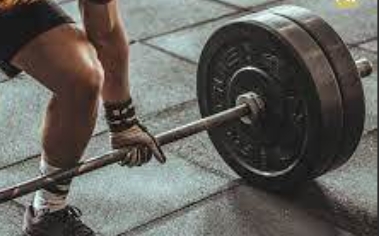Staying hydrated is one of the simplest and most effective ways to support your body, especially when engaging in physical activity. Proper hydration is crucial for maintaining energy levels, optimizing performance, and promoting overall health. Unfortunately, many people overlook the significance of hydration, especially during intense workouts or daily routines, which can lead to dehydration and a range of negative health effects. Understanding the importance of hydration and how to maintain proper fluid balance can help improve your fitness outcomes and enhance your well-being.
One of the most important roles of hydration is its ability to regulate body temperature. When you exercise, your body generates heat, and the process of sweating helps cool you down. However, sweating also leads to fluid loss, and if you don’t replenish the lost fluids, your body can become overheated, leading to fatigue and an increased risk of heat-related illnesses such as heat exhaustion or heat stroke. By staying properly hydrated before, during, and after exercise, you help your body regulate its temperature and perform at its best.
Hydration is also essential for maintaining proper cardiovascular function during exercise. When you’re dehydrated, the volume of blood in your body decreases, making it harder for your heart to pump blood efficiently. This can lead to an increased heart rate, higher perceived exertion, and reduced endurance. Proper hydration helps maintain blood volume, allowing your heart to pump oxygen and nutrients to muscles more effectively. This results in better performance and a reduced risk of cardiovascular strain during physical activity.
In addition to supporting cardiovascular health, hydration plays a key role in joint health. The cartilage in your joints is primarily made up of water, and adequate hydration helps keep these joints lubricated and functioning properly. Without enough water, your joints can become stiff and more susceptible to injury. Proper hydration also helps reduce muscle cramps, as muscles rely on water to contract and relax effectively. Staying hydrated ensures that your muscles perform optimally and that you avoid discomfort during exercise.
Hydration is also vital for nutrient transport and absorption. Water is a key component of your blood and helps transport nutrients, including vitamins, minerals, and glucose, to cells throughout the body. When you’re well-hydrated, your digestive system works more efficiently, aiding in the absorption of nutrients that support energy production and muscle recovery. Dehydration, on the other hand, can slow down these processes and hinder recovery after a workout. By drinking enough water, you ensure that your body receives the nutrients it needs to fuel your muscles and replenish energy stores.
Mental clarity and focus are also affected by hydration. The brain is made up of about 75% water, and even mild dehydration can lead to reduced cognitive function. When you’re dehydrated, you may experience difficulties with concentration, decision-making, and memory recall. This can impact both physical performance and everyday tasks. Staying hydrated helps ensure optimal brain function, enhancing focus and reaction time during workouts and improving overall productivity throughout the day.
In addition to its physical benefits, hydration is important for maintaining healthy skin. Water helps keep the skin hydrated, plump, and elastic, which is essential for preventing dryness, wrinkles, and other skin issues. When you’re dehydrated, your skin can become dry and less resilient, leading to an aged appearance. Proper hydration supports collagen production, helping maintain skin’s youthful appearance and overall health.
Another critical aspect of hydration is its role in detoxification. Water is a key component of the body’s natural detoxification processes, as it helps flush toxins and waste products through the kidneys and urinary system. Staying hydrated ensures that your kidneys can effectively filter and remove waste, preventing the buildup of harmful substances in your body. Dehydration can impair this process, making it more difficult for the body to eliminate waste and potentially leading to kidney stones or other complications.
For athletes and individuals who engage in intense physical activity, it’s essential to drink fluids both before and after exercise, not just during. A good rule of thumb is to drink water throughout the day to maintain hydration levels and drink additional fluids during workouts, especially if they last longer than an hour. In situations where you’re exercising in hot conditions or participating in prolonged endurance activities, it may be beneficial to consume sports drinks containing electrolytes, such as sodium and potassium, to replace the minerals lost through sweat.
It’s also important to note that the amount of water needed varies depending on factors such as age, gender, activity level, and climate. A general recommendation is to aim for at least 8 cups (64 ounces) of water per day, but athletes and those engaging in vigorous exercise may require more. It’s important to listen to your body and drink when you feel thirsty, and monitor the color of your urine – clear or light yellow urine is a good sign that you’re staying hydrated.
In conclusion, proper hydration is essential for optimal health and fitness. From regulating body temperature and supporting cardiovascular and joint health to enhancing mental clarity and nutrient absorption, the benefits of staying hydrated are far-reaching. Hydration plays a crucial role in maximizing exercise performance, preventing injuries, and supporting recovery. By drinking enough water throughout the day and during physical activity, you help your body function at its best and improve overall well-being. Make hydration a priority, and you’ll notice significant improvements in both your fitness and daily performance.





